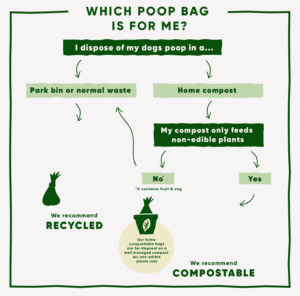Yes, dogs can become addicted to drugs. Just like humans, they can develop a dependency on certain substances. So let’s read: Can Dogs Be Addicted to Drugs?
Many people may not realize that dogs can face challenges similar to ours. They can be affected by drugs, both illicit and prescription. Dogs may accidentally ingest harmful substances or even be exposed to drugs through their owners. This can lead to serious health issues.
Understanding the signs of addiction in dogs is important for pet owners. Recognizing these signs can help you take action quickly. Awareness can lead to better care and a healthier life for your furry friend. In this post, we will explore how drug addiction affects dogs and what you can do if you suspect your pet may be struggling.
Table of Contents

Credit: kids.frontiersin.org
The Science Behind Canine Drug Addiction
Understanding how dogs can become addicted to drugs is crucial. Dogs respond to substances much like humans do. Their brains react to drugs, creating a cycle of dependence. This section explores the chemical aspects and brain responses involved.
Chemical Hooks In Common Substances
Many substances can hook a dog’s brain. Here are some common ones:
- Marijuana – Can cause lethargy and confusion.
- Alcohol – Affects coordination and can be toxic.
- Prescription medications – Some are harmful if ingested.
- Illegal drugs – Like cocaine and meth, they are very dangerous.
These substances can create a strong pull on a dog’s system. Dogs may seek them out again after exposure. This is due to their brain’s reaction to the chemicals.
How A Dog’s Brain Reacts To Drugs
A dog’s brain has a reward system. This system releases a chemical called dopamine. Dopamine is linked to pleasure. Here’s how it works:
- First, a dog encounters a drug.
- The drug stimulates the brain.
- Then, dopamine levels rise.
- This creates feelings of happiness or euphoria.
- The dog wants to repeat the experience.
Repeated exposure can lead to addiction. The brain adjusts to the drug. It becomes less sensitive to natural rewards. Dogs may lose interest in regular activities.
Understanding these reactions is vital. It helps in recognizing the signs of addiction. Early intervention can prevent severe consequences.
Types Of Drugs That Pose Risks To Dogs
Many drugs can be harmful to dogs. Both human medications and illegal drugs can pose serious risks. Understanding these drugs helps keep pets safe. Here are some key types that can affect dogs.
Human Medications And Their Impact On Pets
Many common human medications are dangerous for dogs. Some of these include:
- Acetaminophen (Tylenol): Causes liver damage.
- Ibuprofen (Advil): Can lead to stomach ulcers.
- Antidepressants: May cause tremors and seizures.
- Cold medications: Contain ingredients harmful to dogs.
- Beta-blockers: Can cause low heart rate.
Always store medications safely. Keep them out of reach. Never give human medications to dogs without vet advice.
Illicit Substances That Can Harm Dogs
Illegal drugs also pose risks. Dogs may accidentally ingest these substances. Common illicit drugs include:
| Drug | Effects on Dogs |
|---|---|
| Cocaine | Can cause seizures and heart issues. |
| Marijuana | Leads to lethargy and coordination problems. |
| Heroin | Can depress the central nervous system. |
| LSD | May cause hallucinations and anxiety. |
Be cautious of these drugs in your home or neighborhood. Dogs may find them and ingest them. This can lead to serious health issues.
Over-the-counter Products With Addictive Potential
Some over-the-counter products can also harm dogs. They may contain substances that lead to addiction. These include:
- Cough syrups: Many contain harmful ingredients.
- Weight loss pills: Can be toxic to pets.
- Vitamins and supplements: Excessive amounts can cause problems.
Always check labels before using any product around dogs. Consult a vet if unsure. Safe usage protects your pet.
Accidental Exposure Vs. Intentional Misuse
Understanding how dogs can get exposed to drugs is important. Dogs may encounter drugs accidentally or through intentional misuse. Both situations can lead to serious health risks.
Common Scenarios For Accidental Drug Exposure
Many dogs accidentally ingest drugs. Here are some common scenarios:
- Leftover Medications: Dogs may find pills on the floor.
- Trash Diving: Dogs often rummage through trash for food.
- Visitors: Guests may unknowingly drop medications.
- Prescription Bottles: Dogs may chew on bottles left unattended.
Pet owners should be cautious. Always store medications safely. Keep them out of reach. This can prevent accidental exposure.
The Troubling Trend Of Intentional Drugging
Intentional drugging of dogs is a growing problem. Some people misuse drugs for various reasons. Here are some troubling facts:
- Some owners give drugs to control behavior.
- Others may use drugs for recreational purposes.
- Some individuals may not care about the dog’s health.
This misuse can lead to addiction and health issues. Dog owners must be responsible. Proper training and care are essential.
Clinical Signs Of Drug Addiction In Dogs
Recognizing drug addiction in dogs is crucial for their well-being. Early detection leads to better treatment options. Watch for specific signs that indicate your dog may be struggling with addiction.
Behavioral Changes Indicating Addiction
Behavioral changes can signal drug addiction in dogs. Look for these signs:
- Increased isolation: Your dog may avoid interaction.
- Changes in appetite: Notice if your dog eats less or more.
- Hyperactivity: Excessive energy can be a warning sign.
- Sudden aggression: Unexplained hostility is concerning.
- Destructive behavior: Chewing or digging may increase.
These changes often reflect a dog’s struggle with addiction. Pay close attention to their mood and habits.
Physical Symptoms To Watch For
Physical symptoms are also key indicators of addiction. Watch for:
| Symptom | Description |
|---|---|
| Weight loss: | Noticeable decrease in body weight. |
| Unkempt coat: | Hair loss or lack of grooming. |
| Vomiting: | Frequent sickness can indicate issues. |
| Seizures: | Unexpected seizures require immediate attention. |
These physical signs are serious. They indicate that your dog needs help. Early intervention can make a difference.
Prevention Strategies For Dog Owners
Preventing drug addiction in dogs is crucial for their health. Dog owners play a key role in keeping their pets safe. Simple steps can help avoid accidental exposure to drugs.
Safe Medication Storage Practices
Storing medications safely is essential. Follow these tips:
- Keep all medications out of reach: Store them in cabinets or drawers.
- Use child-proof containers: These are harder for pets to open.
- Never leave medications on counters: Dogs can jump and reach them.
- Dispose of unused medications: Follow local guidelines for safe disposal.
Awareness And Education To Avoid Accidental Exposure
Understanding risks helps prevent drug exposure. Here are key points:
- Know common household drugs: Recognize which ones are harmful to dogs.
- Educate family members: Teach everyone about safe practices.
- Monitor guests: Remind visitors to keep their medications secure.
- Watch for signs of curiosity: Keep an eye on your dog’s behavior.
Awareness can save lives. Always stay informed about potential dangers.

Credit: metro.co.uk
Intervention And Treatment For Affected Dogs
Dogs can develop a drug addiction just like humans. This condition needs careful intervention and treatment. Owners must act quickly to help their pets. The treatment process involves several steps. These include detoxification, veterinary care, and behavioral therapies.
Detoxification And Veterinary Care
Detoxification is the first step in treating a dog with a drug problem. It helps the dog remove drugs from its system. This process can be uncomfortable for the dog.
Veterinary care is crucial during detoxification. A veterinarian will monitor the dog’s health. They will provide medications to ease withdrawal symptoms. This care ensures that the dog stays safe and healthy.
Here are some important points about detoxification:
- Veterinarians assess the dog’s condition.
- Detox can take several days to weeks.
- Supportive care includes fluids and nutrition.
- Monitoring is essential to prevent complications.
Behavioral Therapies For Recovery
Behavioral therapies help dogs learn new habits. These therapies address the underlying issues of addiction. They focus on changing a dog’s response to triggers.
Common behavioral therapies include:
- Positive reinforcement training.
- Desensitization to triggers.
- Socialization with other dogs.
- Structured daily routines.
These methods help dogs feel secure. They learn to cope without drugs. Owners play a vital role in this process. Consistency and patience are key.
Support groups for pet owners can also help. Sharing experiences makes the journey easier. Recovery takes time. But with the right support, dogs can lead happy, healthy lives.
Legal And Ethical Considerations
The issue of dog addiction to drugs brings up important legal and ethical questions. Understanding these areas helps us take better care of our pets. Owners must know the laws and their responsibilities.
Laws Surrounding Pets And Controlled Substances
Each state has laws about pets and drugs. These laws can vary widely. Here are some key points:
- Controlled Substances Act: This law regulates drugs in the U.S.
- Animal Welfare Act: This law protects pets from abuse.
- State Laws: Some states have specific laws about pets and drugs.
Possession of illegal substances can lead to serious consequences. If a pet consumes drugs, the owner may face legal action. Owners must ensure their pets are safe from harmful substances.
Ethical Responsibilities Of Pet Ownership
Owning a pet means taking on ethical duties. Here are some key responsibilities:
- Provide a safe environment.
- Ensure proper medical care.
- Educate yourself about pet health.
- Never expose pets to drugs.
- Report any drug misuse involving pets.
It’s vital to protect pets from drug exposure. Educating yourself helps prevent addiction. Ethical pet ownership involves making choices that promote health and safety.
Support And Resources For Owners
Dealing with a dog’s addiction can be tough. Owners need support and resources. Finding help is crucial. Many groups and networks exist to assist pet owners. They provide guidance and understanding.
Support Groups And Networks For Pet Owners
Support groups offer a safe space for owners. Here are some key points about them:
- Share experiences with others.
- Gain emotional support.
- Learn from professionals.
- Access valuable resources.
Some well-known networks include:
| Network | Description |
|---|---|
| Pet Addiction Support Group | A community for sharing and support. |
| Canine Recovery Network | Offers resources for recovery and care. |
| National Pet Owners Association | Provides information and support for all pet issues. |
Where To Find Help If You Suspect Addiction
Finding help is important for your dog’s health. Here are some ways to seek assistance:
- Contact your veterinarian. They can provide advice.
- Search for local pet rehab centers.
- Look for online forums for pet addiction.
- Reach out to animal behaviorists for guidance.
Remember, early intervention is key. Help is available.

Credit: people.howstuffworks.com
Frequently Asked Questions
Can Dogs Get Addicted To Drugs?
Yes, dogs can develop an addiction to drugs. Just like humans, they can experience cravings and withdrawal symptoms. This often occurs with substances like opioids or certain medications. If you suspect your dog is addicted, seek professional veterinary help immediately.
What Drugs Are Harmful To Dogs?
Several drugs can be harmful to dogs, including common medications like ibuprofen and acetaminophen. Additionally, illegal substances such as marijuana and cocaine pose serious risks. Always store medications safely and keep harmful substances out of your pet’s reach to prevent accidental ingestion.
How Can I Tell If My Dog Is Addicted?
Signs of addiction in dogs can include changes in behavior, such as increased restlessness or anxiety. You may notice your dog seeking out the substance or displaying withdrawal symptoms when it’s not available. Observing these signs warrants a discussion with your veterinarian for further evaluation.
Is Drug Addiction In Dogs Treatable?
Yes, drug addiction in dogs is treatable. Treatment often involves detoxification and behavioral therapy. A veterinarian can create a tailored plan to help your dog recover. Early intervention is crucial for the best outcomes, so consult a professional as soon as possible.
Conclusion
Dogs can indeed become addicted to drugs. This issue affects their health and behavior. Owners must be aware of the risks. Keeping harmful substances away from pets is essential. If a dog shows signs of addiction, seek help from a vet.
Treatment options are available. Understanding this problem helps protect our furry friends. Awareness is key to their safety. Take action to ensure a healthy life for your dog. Your attention can make a big difference. Always prioritize their well-being.



